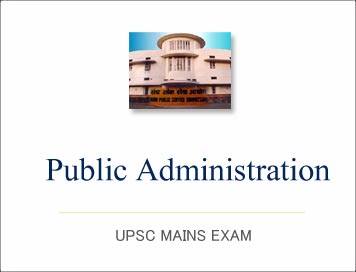Public Administration Mains 2022 : Solved Paper-1 (Question: 7)

Public Administration Mains 2022 : Solved Paper Question Paper-1 (Question-7)
SECTION-B
Q7.(a) The results of Washington Consensus were far from optimal for transitional economies. In this background, discuss the change of direction towards post-Washington Consensus.(Public Policy)
The Washington Consensus aimed to offer a strategy for boosting economic expansion and establishing a thriving private sector. In hindsight, the policy recommendations were extremely risk-averse because they were motivated by the desire to steer clear of the worst disasters.
The Washington Consensus was insufficient and sometimes even deceptive, despite the fact that it provided some of the foundations for thriving markets. The East Asian miracle project funded by the World Bank marked a significant turning point in the discussion. It demonstrated that macroeconomic stability and privatization were not the only factors that contributed to the remarkable success of East Asian economies. Although I have explicitly mentioned the "Lessons of the East Asian Miracle" in other places, the overarching concepts have permeated every one of my remarks this morning. It will be difficult to efficiently allocate capital or mobilize savings in the absence of a robust financial system, which the government plays a significant role in creating and maintaining.
The advantages of free trade and privatization will be wasted on rent seeking rather than wealth creation unless the economy is competitive. Additionally, the market will not be able to fill the void if public investments in human capital and technology transfers are insufficient.
A post-Washington Consensus consensus is based on many of these ideas, and even more so. Whatever the new consensus is, it cannot be based on Washington, according to these emerging ideas. Policies can only be long-lasting if developing nations take ownership of them. Inflation rates and current account balances can be more easily monitored and controlled. It is neither possible nor desirable to carry out the same approach to competition policy or financial sector regulation. A greater degree of humility, or the candid acknowledgement that we do not have all of the answers, is the second principle of the emerging consensus. If we are to better comprehend how to achieve our numerous objectives, it is necessary for us to continue conducting research and having discussions, not only between the World Bank and the International Monetary Fund but also around the world.
(b) A sound budgeting system is one which engenders trust among citizens that the government is listening to their concerns. Elaborate this in the context of budgetary governance. (Financial Administration)
ANSWER: ONLY FOR COURSE MEMBERS
(c) Performance problems are rarely caused simply by lack of training and rarely can performance be improved by training alone. Critically analyse the statement.(Techniques of Administrative Improvement)
There is a widespread belief in many businesses that an employee requires additional training if they are not performing tasks "correctly." For a learning professional or upper leadership, this assumption and others that immediately look to training as the solution may sound like job security.
However, the idea that training can solve all problems with productivity or behavior can cause an organization to fail, which could mean that training programs lose all support.
One fundamental issue can be solved by conventional training models: lack of expertise or knowledge It's simple to fix a performance problem caused by a lack of knowledge or skills: The issue will be resolved if effective training, ongoing learning, and a support system are provided.
Even if the training solution is excellent, it will not address the performance issue if it is not related to training. Upper management will be persuaded that training is ineffective by this type of failure. It is essential to provide solutions that are effective as opposed to the same, routine training in order to guarantee the program's success and longevity.
What about the other factors that contribute to poor performance? Is it true that your training program is unnecessary if it only addresses one cause? Definitely not! Any good training program can help with solutions for improving overall performance.
